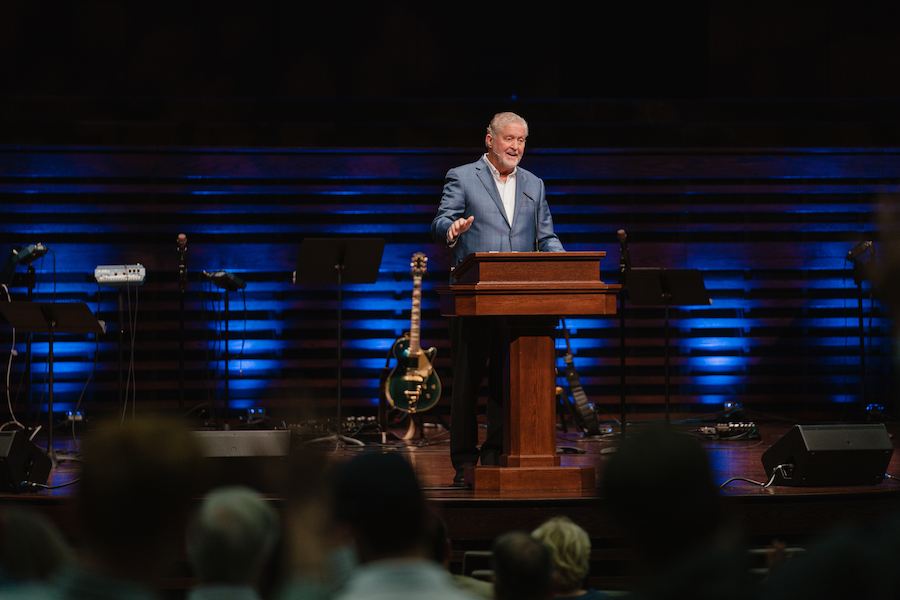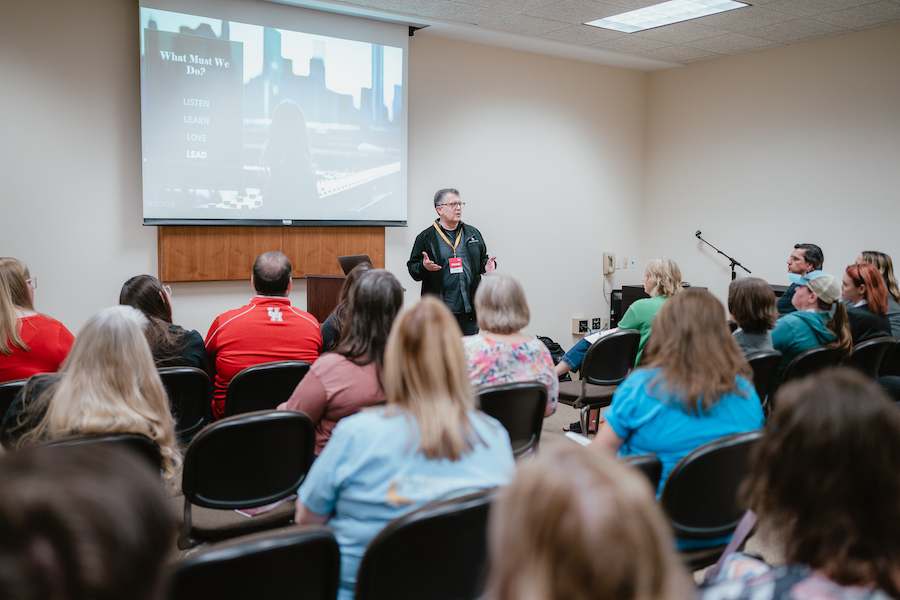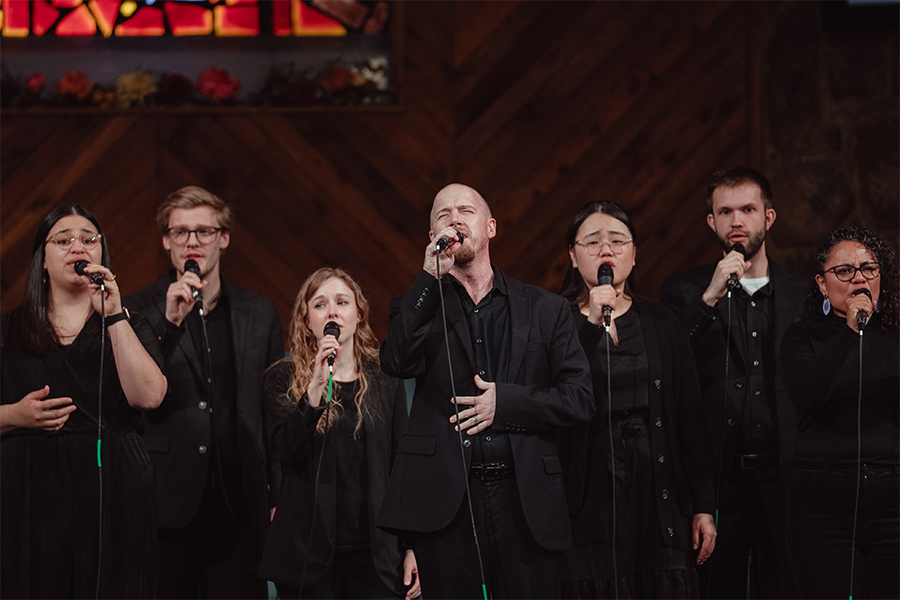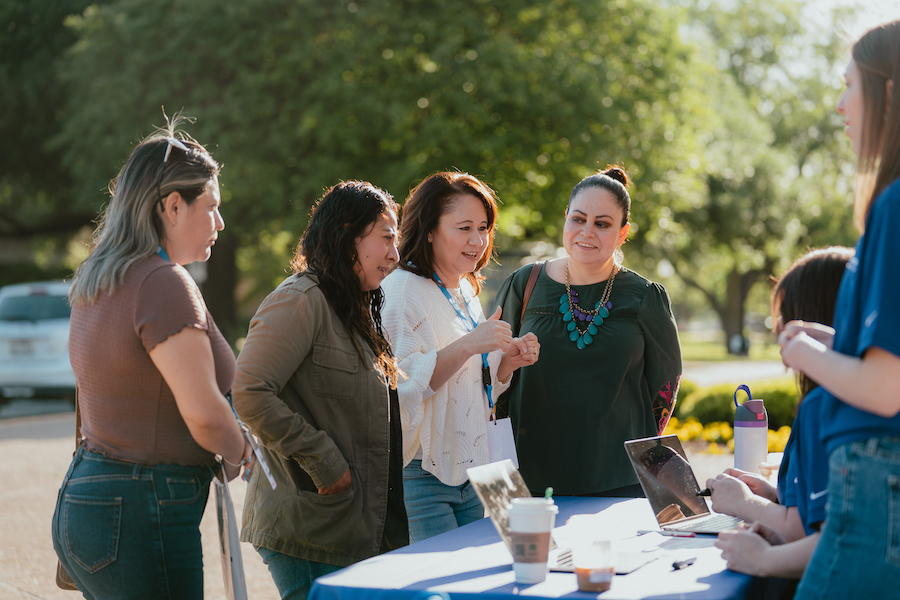Let the Lord fight your battles, Greenway encourages students at convocation
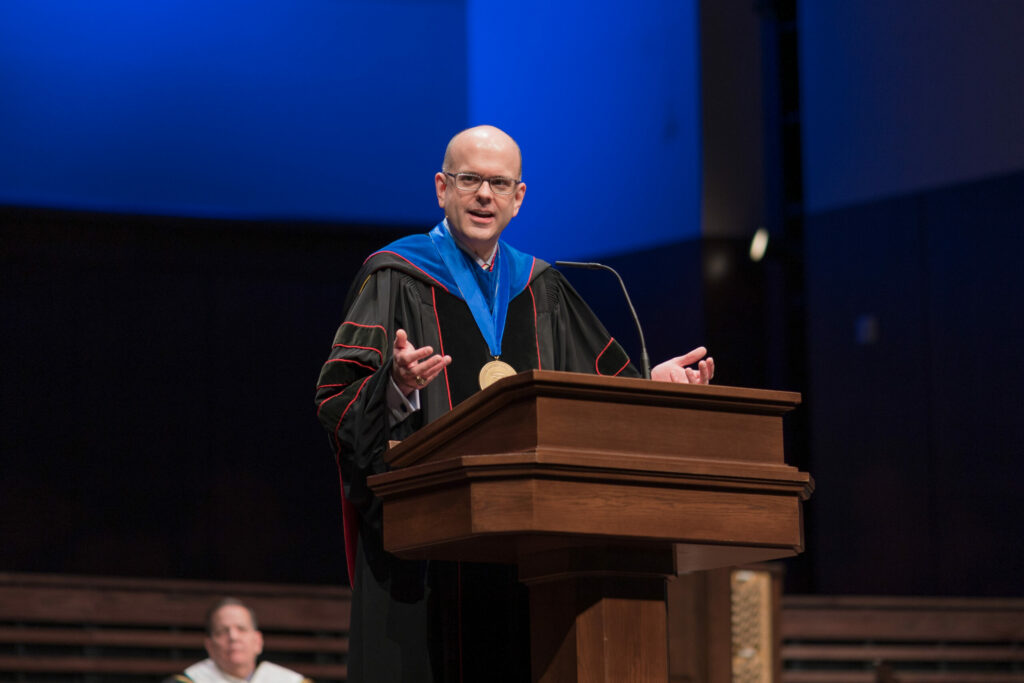

Doing the Lord’s work may bring attacks, but the battle belongs to the Lord, President Adam W. Greenway encouraged students during his August 23 convocation message at Southwestern Baptist Theological Seminary and Texas Baptist College, drawing upon the solace of David’s words in Psalm 18 and warnings in the nearly century-old words of L.R. Scarborough, the seminary’s second president.
“Do not succumb to the temptation to fight the battle yourselves, to take on the weapons of the flesh, to rely upon all the wisdom of this world,” Greenway challenged. “Cast yourself upon the Lord afresh and anew, His mercies, His goodness.”
In the first chapel service to begin the fall 2022 academic semester, Greenway welcomed new students, new trustees, and new professors to Southwestern Seminary and TBC.
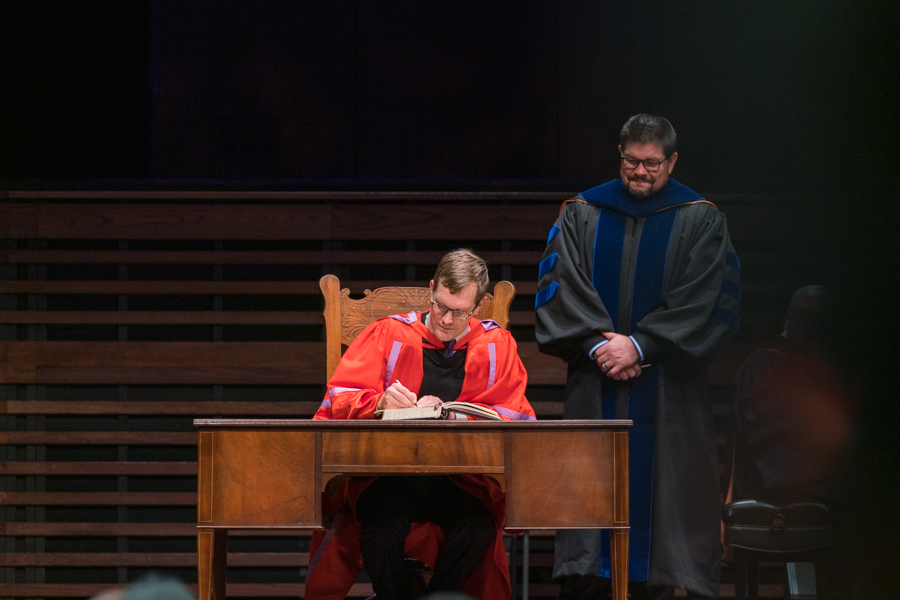
During the service, Joshua A. Waggener, professor of church music and worship in the School of Church Music and Worship, signed the seminary’s Book of Confessional Heritage, which Greenway described as “one of the most solemn acts” undertaken by faculty members. He noted that Southwestern Seminary was the first Southern Baptist institution to adopt the Baptist Faith and Message as its confessional statement and “since 1926 our seminary has held without hesitation, reservation or apology to all that is contained in the Baptist Faith and Message as adopted and amended by the Southern Baptist Convention” calling it Southwestern’s “faith and message.”
Elected by the board of trustees in April, Waggener previously served on the faculty of Southeastern Baptist Theological Seminary and earned his Doctor of Philosophy degree from Durham University in the United Kingdom.
Five appointed faculty members were also introduced, including Jonathan Atkinson, assistant professor of biblical studies at Texas Baptist College; Marc W. Brown, assistant professor of church music and worship in the School of Church Music and Worship; Michael L. Copeland, assistant professor of missions in the Roy J. Fish School of Evangelism and Missions and associate director of the World Missions Center; P. Chase Sears, assistant professor of biblical studies at Texas Baptist College; and J. Stephen Yuille, professor of pastoral theology and spiritual formation in the School of Theology.
In Greenway’s convocation message, he said despite challenges, believers must remember that “He is greater than all. What may seem like a mountain before you, our great God can shake that mountain down to dust.”
Recognizing the current strife and dissension in the broader culture as well as within Southern Baptist denominational life, Greenway noted Scarborough, who served as president from 1915-1942, addressed similar issues in a 1924 tract entitled The Fruits of Norrisism about fundamentalist opponent J. Frank Norris.
Greenway read from portions of the tract in which Scarborough said the movement was “wholly destructive in spirit and methods” and thrived “on sensationalism, misrepresentation and false accusations of good men and true causes. It masquerades … in order to ride into public favor and cast poisonous suspicion on the leadership of the causes of constructive Christianity.”
Scarborough also wrote, “It uses the pulpit, the press, and the radio to create suspicion, to foment class prejudices, and to vent its hatred again innocent personalities and institutions. It divides and splits families, churches, associations, and strikes its poisonous fangs at the brotherhood of Christianity. The individual, the preacher, or church who joins in sympathy with this cult will sooner or later cease to cooperate with the mission, educational, or benevolent enterprises fostered by God’s people.”
Greenway observed, “It’s as if Dr. Scarborough were looking down from heaven and addressing the very things we find happening in our denominational life, in our cultural context right before us.”
Greenway noted that attacks from “those who believe they are doing the Lord’s very work by coming against you” sometimes will prompt people to fight back in the flesh and self. He recounted that Saul was originally anointed king of Israel, however, after he did things “contrary to the will and the Word of God,” David was anointed the new king. He added Psalm 18 was written by David after “the old king tries to do all he can to kill the new king.”
“One thing he had was the one thing that mattered most, and that was he had the favor of God,” Greenway said, adding that “those who have their kingdoms taken from them will often times become the ones who do everything they can to see that kingdom fall.” Even though David had the call and anointing of God, his path to fulfill the promise was made excruciating by Saul, who had lost the kingdom, he observed.
Greenway explained David refused to battle against his foe in the flesh, but instead put his faith in the Lord. He noted David began the psalm with his love of the Lord.
“There is not one hint of self-sufficiency here,” Greenway proclaimed. “There is humble surrender and total acknowledgment of what God has done.”
Greenway said it is “easy” during times of “stress and distress” for believers “to turn aside from the sufficiency and authority of God’s Word” and instead “rely upon the weapons of the self and the flesh.”
Instead, Greenway commented, David wrote that he would “let His ordinances guide me.”
“Here is one thing I am confident of: the enemy is going to be alive and well and trying to work,” Greenway promised. “If we are not fully surrendered to the lordship of Christ, if we are not walking in step with the Spirit, if we are not relying upon the Lord to fight our battles, and His Word to sanctify us, we will become like those who oppose us.”
Chapel is held every Tuesday and Thursday morning at 10 a.m. (CT) in MacGorman Chapel on the campus of Southwestern Seminary and TBC. Chapel may be viewed live at swbts.edu/live.
